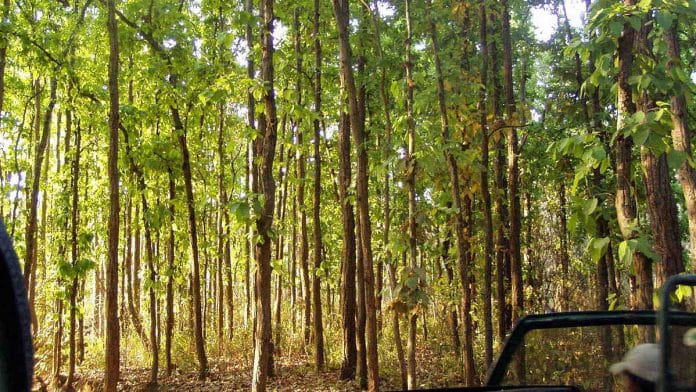New Delhi: Months after it gave “in-principle approval” for extended reach drilling (ERD) — a method of extracting oil and gas — in forest areas, the Forest Advisory Committee (FAC) of the Union Ministry of Environment, Forest and Climate Change (MoEFCC) has recommended that further studies need to be done before a final decision is made.
According to the minutes of the FAC’s latest meeting, held on 1 August, the Wildlife Institute of India (WII), an autonomous government institution under the MoEFCC, cautioned the committee against drilling in wildlife corridors and advised that the impacts of ERD need to be evaluated further.
Extracting oil and gas through ERD involves digging a horizontal well at an incline that is at least twice as long in its length as it is in depth, which allows for the drilling to take place at a distance from the site of extraction.
Among the 10 recommendations put forward by the WII are installing “an active noise-proof solution to avoid impacting local habitats and wildlife” and putting in place “a comprehensive plan to mitigate the effects of light pollution around the drilling site”.
The WII also said drilling should not be allowed within one kilometre of protected areas and wildlife corridors, adding that this range is only based on the “precautionary principle” and that the “exact distance should be recommended based on the detailed study”.
The WII further said drilling should not occur during peak wildlife activity times, such as during the early morning and evening. It also noted that all operations should be limited to the drilling site and “all other subsidiary infrastructure should be far away from critical wildlife habitats”.
In a meeting held on 31 March, the FAC had given “in principle” approval for ERD based on a report by the Directorate General of Hydrocarbons — which comes under the Ministry of Petroleum and Natural Gas — that proposed drilling should occur at least a kilometre outside protected areas.
Now, after the latest recommendations, the FAC has directed the Wildlife Institute to collaborate with the Directorate General of Hydrocarbons and collect “primary data from the existing locations where ERD technology is being used” to produce a report and submit it within three months.
However, some environmentalists have expressed concerns that this approach may be inadequate when it comes to understanding the effects of ERD.
“This evaluation method is full of risks because it is not being undertaken by a technical body. Neither the Wildlife Institute of India nor the Directorate General of Hydrocarbons have the expertise in drilling and the impacts it can have on something like groundwater resources,” said geologist Sreedhar Ramamurthi, who is also managing trustee of the Environics Trust. “It’s important that a technical body be brought in to evaluate ERD”.
Also read: Oil drills, safaris — Amendments to forest act could increase economic activity in reserved areas
Concerns about ERD in forest areas
The FAC has been mulling whether to allow ERD in forest areas for a year now.
When the committee gave it in-principle approval in March, it noted that the technology posed “no direct impact” on wildlife but could have “indirect” consequences, like forest fires, soil contamination, and so on. It said a “final decision” could be taken after the Wildlife Institute of India gave its go-ahead.
Notably, in October last year, the Union Ministry proposed exempting ERD from the purview of the Forest (Conservation) Act, or FCA— the law governing activities in forests — calling it an “environmentally friendly” technology. A final decision regarding this is yet to be made.
In the March meeting, the Directorate General of Hydrocarbons had also argued that the Act shouldn’t apply to ERD since it would be operated from “outside forest areas” and would thus have a “minimal impact”.
Experts are concerned that, apart from environmental impacts, a final approval on this kind of drilling could lead to exemptions in the clearance process laid down by the FCA. Currently, permits for ERD are granted by the Union Ministry of Environment.
(Edited by Asavari Singh)
Also read: Unsustainable logging, hunting — new report finds what’s driving a million species to extinction






